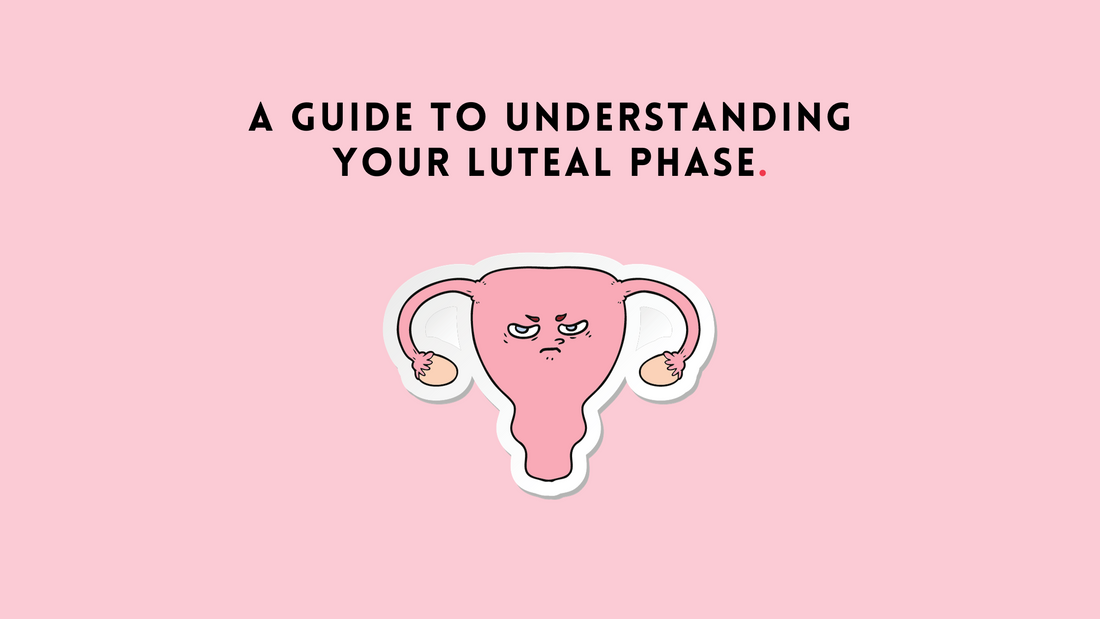The luteal phase is one of the four phases of a woman's menstrual cycle. It plays a pivotal role in preparing the body for a potential pregnancy post-ovulation. It's marked by specific hormonal changes and symptoms that differ from other phases.
What is the Luteal Phase?
The luteal phase is the period that begins after ovulation and ends with the start of your menstrual period. It typically lasts about 12-16 days, with the average being around 14 days. During this time, the ovulated egg is making its way through the fallopian tube, preparing the uterus for possible pregnancy.
Hormonal Changes in the Luteal Phase
Progesterone Surge: After ovulation, the follicle that released the egg transforms into a structure known as the corpus luteum. This corpus luteum produces progesterone, which helps thicken the endometrial lining of the uterus for a potential pregnancy. If the egg is fertilized, this thick lining will help nourish the developing embryo.
Decreased Estrogen Levels: Estrogen levels peak right before ovulation and drop shortly after, while progesterone becomes the dominant hormone during the luteal phase.
Symptoms and Signs of the Luteal Phase
Basal Body Temperature Rise: One of the key indicators that you've entered the luteal phase is a noticeable increase in your basal body temperature (BBT). Charting your BBT can help determine the onset of the luteal phase.
Premenstrual Symptoms: Many women experience premenstrual syndrome (PMS) symptoms during the luteal phase. These can include mood swings, bloating, breast tenderness, and fatigue.
Changes in Cervical Mucus: The cervical mucus becomes thicker and stickier after ovulation, creating a protective barrier for the potential fertilized egg.
Why the Luteal Phase is Important for Fertility
Implantation Window: A fertilized egg (or embryo) implants itself into the uterus about 6-10 days after ovulation. A healthy luteal phase ensures that the uterus lining is thick enough to support this implantation.
Short Luteal Phase and Fertility: A luteal phase that is consistently less than 10 days can make it difficult for an embryo to implant in the uterus, which can lead to difficulty conceiving or early miscarriages.
Luteal Phase and Mood
Understanding the connection between hormonal fluctuations and mood can be empowering. Progesterone, which rises during the luteal phase, can influence mood and cognition:
Premenstrual Dysphoric Disorder (PMDD): Some women experience severe mood disturbances before their period, known as PMDD. Recognizing the link between the luteal phase and mood can help in addressing and managing PMDD.
Luteal Phase and Skin Health
Hormonal Acne: Some women may notice breakouts during their luteal phase.
Skin Sensitivity: Hormonal fluctuations can lead to increased skin sensitivity, and understanding this can help in adjusting skincare routines.
Diet and the Luteal Phase
Foods to Support Your Luteal Phase: Certain foods can help support the luteal phase. For instance, foods rich in B vitamins and magnesium might help ease PMS symptoms.
Foods to Avoid: Some foods or substances, like excessive caffeine, can exacerbate PMS symptoms for some women.
Exercise and the Luteal Phase
Beneficial Workouts: Some exercises might be particularly beneficial during the luteal phase, such as yoga or light cardio, which can alleviate PMS symptoms.
Listening to Your Body: Some women may feel more fatigued during this phase. It's essential to adjust workout intensity accordingly.
Natural Ways to Support the Luteal Phase
Relaxation Techniques: Stress can impact the length and health of the luteal phase. Incorporating relaxation techniques like meditation, deep breathing, or journaling can be beneficial.
Understanding your body is essential for overall health and well-being. The luteal phase, while only a portion of the menstrual cycle, plays a crucial role in fertility and hormonal balance. Being aware of its implications and how to support it can lead to better reproductive health and improved menstrual comfort.
Note: The information provided in this article is intended for informational and educational purposes only and is not meant to be a substitute for professional medical advice, diagnosis, or treatment. Always seek the advice of your physician or other qualified healthcare provider with any questions you may have regarding a medical condition or any health concerns.

